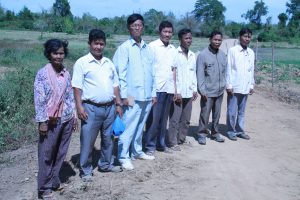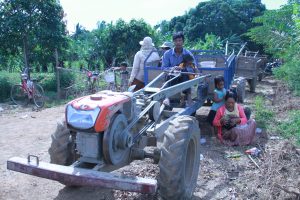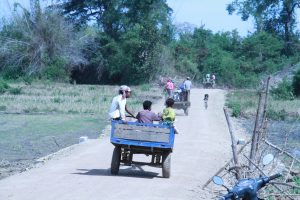Government authorities at the KorLub commune have listened to the needs of their citizens- and it’s paying off for everyone.
The daily journey for a 69-year-old mother-of-four has been made a little easier, thanks to a new infrastructure project at the Kratie province. For years Mrs Yen An woke at 3am to carry vegetables by bicycle from her home at the KorLub commune to the Kratie market, more than 20km away.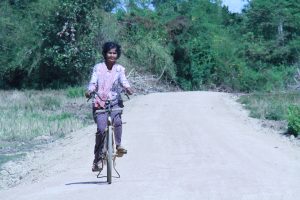
The roads were so bumpy it often took her until 7 am to arrive. But since the commune’s recent investment in two new gravel roads,she can follow a different route that gets her to market by 5 am and saves a further two hours on the return journey. The new roads, totaling 1,150m in length, were built using KorLub’s Commune Development Fund.
This fund was transferred from the national government to the commune as part of a decentralization reform, managed by NCDD, to “bring government closer to the people” and therefore better address the needs of citizens.
Instead of simply spending the money on whatever it liked, the commune authorities asked for suggestions from citizens like Mrs An, about how the Commune Development Fund should be spent.
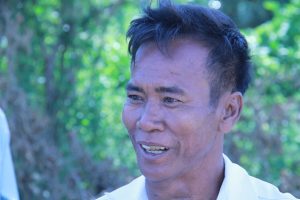 A list of priority projects was compiled, which led to the construction of the two new roads, as well as three new sewers.
A list of priority projects was compiled, which led to the construction of the two new roads, as well as three new sewers.
On November 28 the commune hosted a meeting with citizens to evaluate these projects. Another farmer, 63-year-old father-of-five, Mr Un Bunteab recounted that during heavy rainfall the old roads would be impossible to pass, leaving residents stranded.
This could be particularly dangerous for people travelling to the health centre at night. Vice president of ChrorVa village, in the Korlub commune Sak Sear said residents would previously “get stuck in the street” on their way to seek medical aid.
But the new roads provided reliable access to health centres, which relieved residents. 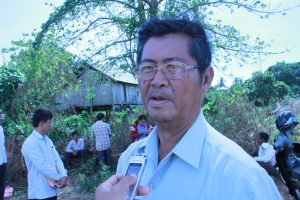
Chet Borei district’s deputy governor Oung Sambath said that farmers were previously limited in how much they could produce because it was so difficult to transport to buyers. “People who grow cassava and agricultural produce and sell to local cassava companies now transport up to 500 kilograms at a time. In the past, they only take 200-300 kilograms,” he said.
However, commune chief Mr Chhum Choy hoped that in the future, more funding would be available to develop more priority projects, such as irrigation systems, to meet citizens’ wishes to improve their living standards.
Please note: The Commune Fund is a package that the government transfers to communes. This fund includes revenue from a certain portion of the annual state budget revenue and development partners’ contributions. The fund has two main parts: General and Local Development. The basic development sector is for operating costs and expenditures by the Commune/Sangkat Administration for Local Infrastructure Development (except for administrative facilities) and the provision of social economic services to Communes /Sangkat (except Administration). The Royal Government established a sub-decree on Commune/Sangkat Fund dated February 25, 2002, after promulgating the Law on Administrative Management of Commune /Sangkat dated March 19, 2001.
